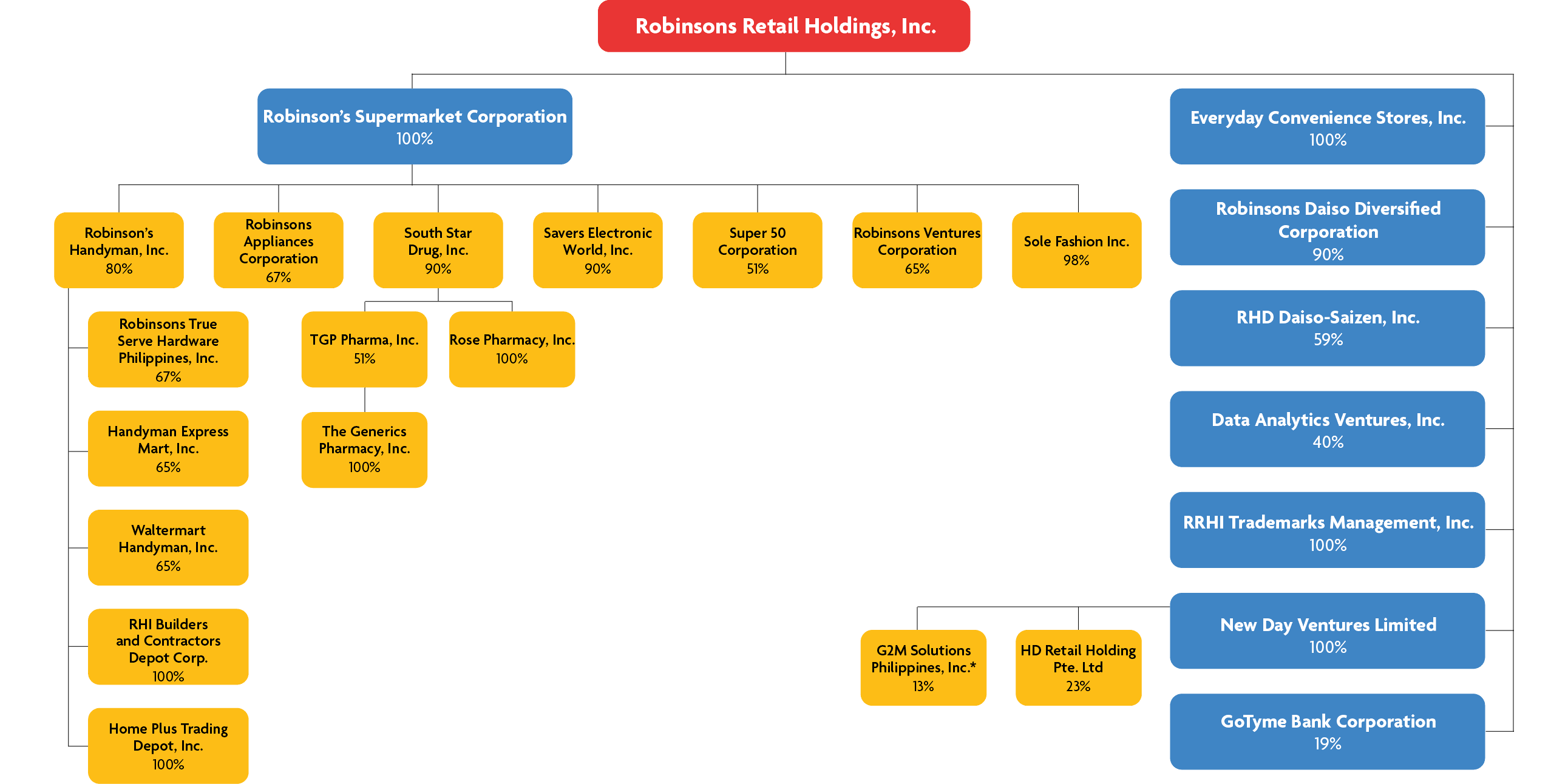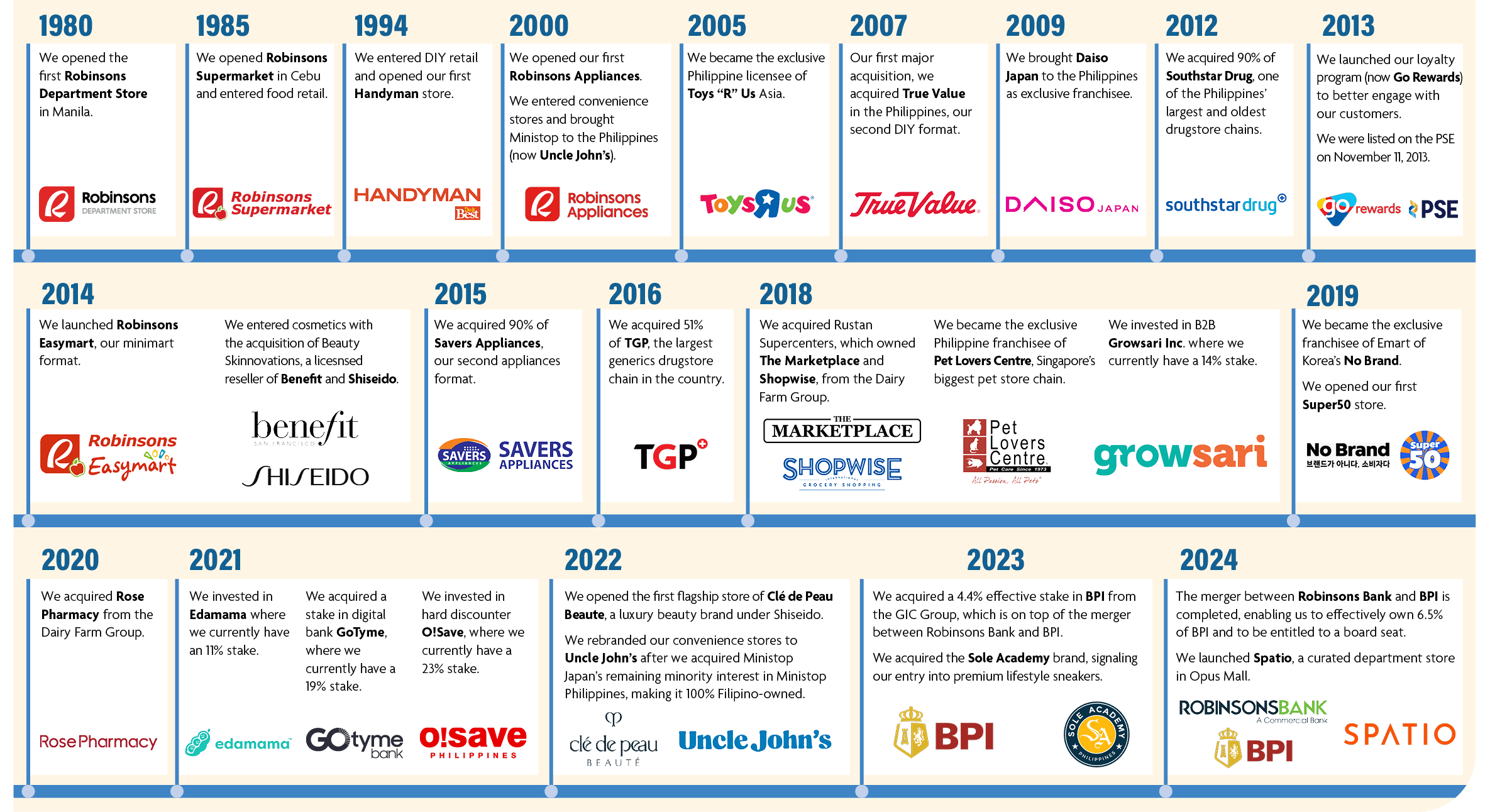

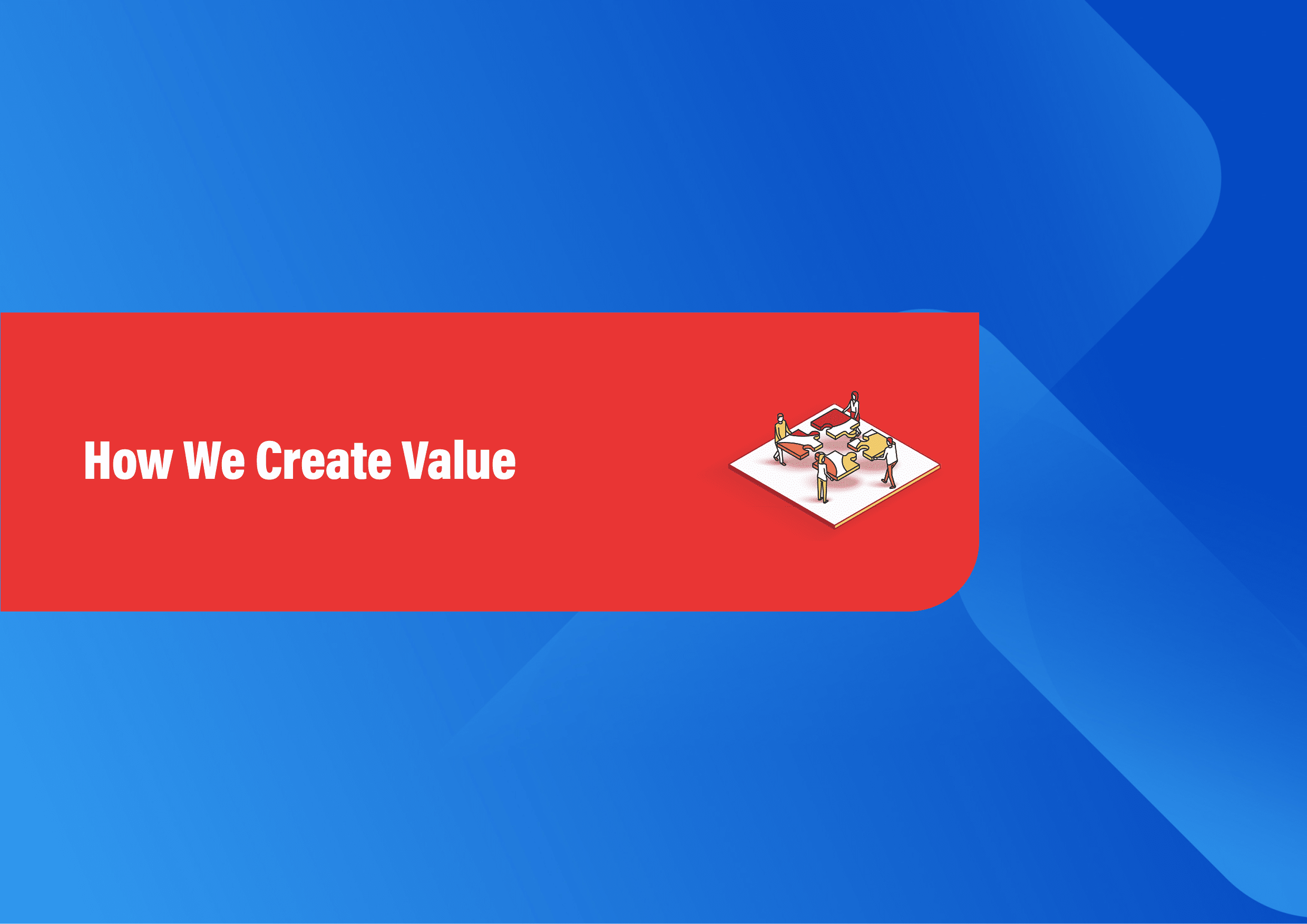
Robinsons Retail Holdings, Inc. is one of the Philippines’
largest multiformat retailers. Founded in 1980 by the
entrepreneur John L. Gokongwei, Jr. with the opening of the
first Robinsons Department Store, we now have a robust network
of over 2,400 stores alongside over 2,100 franchised community
drugstores under TGP.
After 45 years of continued service, we have created a dynamic
portfolio of banners tailored to the needs of the Filipino
shopper—from supermarkets and convenience stores to drugstores,
department stores, DIY stores, and specialty stores covering
appliances, toys, mass merchandise, beauty, pet retail, and
lifestyle sneakers. Our commitment to expansion remains
unwavering. By extending modern retail to underserved regions,
we embrace a holistic business ethos prioritizing sustainability
amid economic shifts. Central to our strategy is a culture
deeply rooted in customer-centricity, ensuring our products and
services resonate responsively with shoppers.
Embracing omnichannel retail, we capitalize on synergistic
alliances as anchor tenants of premier mall developers like
Robinsons Malls while at the same time advancing our digital
presence in online marketplaces. This dual thrust fortifies our
physical footprint while accelerating the digital transition,
aligning with evolving consumer preferences.
At Robinsons Retail, we cultivate meaningful relationships with
our people, stakeholders, and the communities we serve as we
champion a commitment to fostering long-term growth and
sustainability.

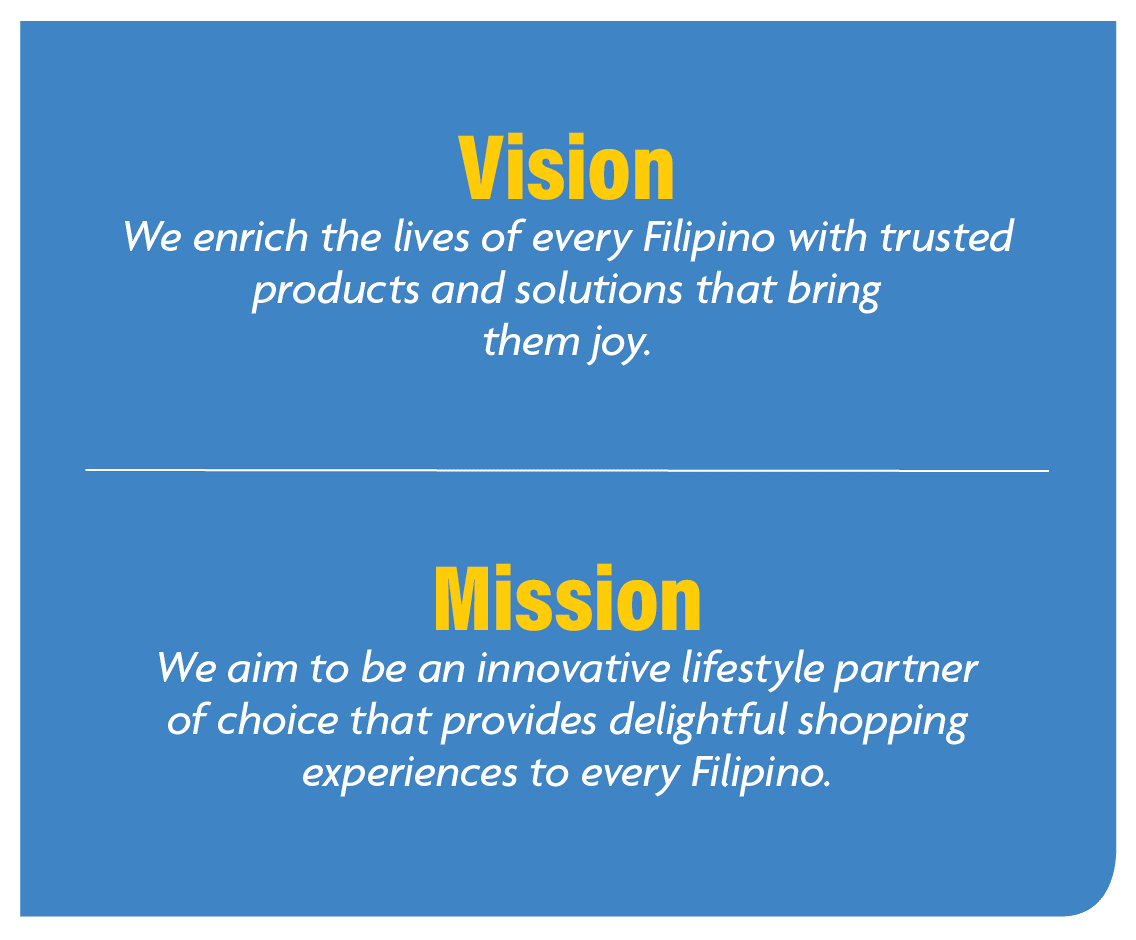
In 2024, Robinsons Retail continued to create value by delivering quality products and services that support the evolving needs of Filipino consumers. Through our integrated retail ecosystem—spanning sourcing, operations, and customer experience—we generated sustainable growth while strengthening our relationships with key stakeholders. Our value creation framework reflects our commitment to responsible retailing, operational excellence, and long-term shared value.
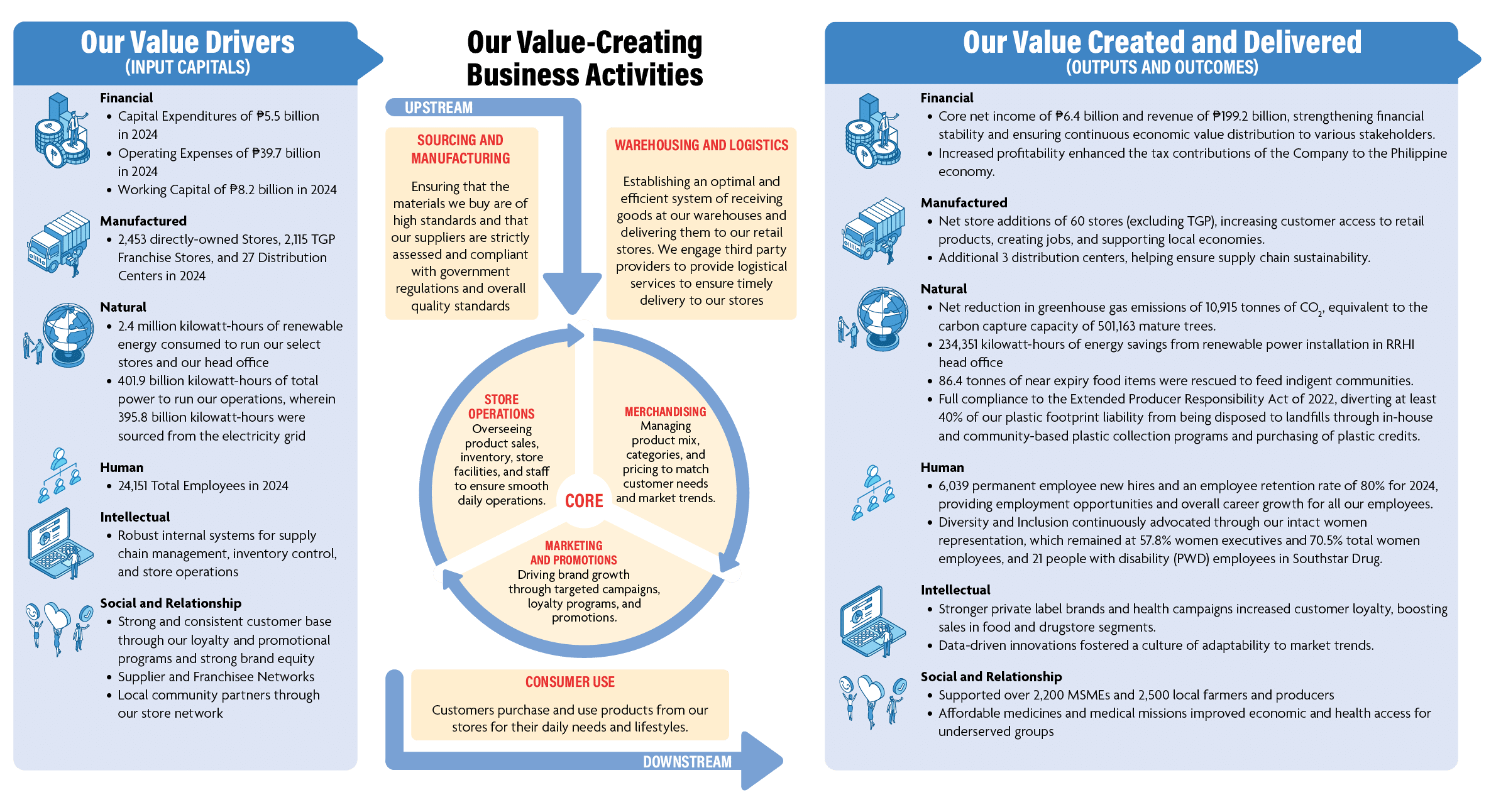

As we look ahead to 2025, we remain at the forefront of Philippine retail, building on a strong performance in 2024 marked by ₱199.2 billion in net sales, ₱9.7 billion in operating income, and ₱6.4 billion in core net income. With the retail market positioned for continued growth, we are focused on creating long term value for our stakeholders by driving innovation, strengthening community ties, and proactively responding to evolving economic and environmental conditions.
Driving Growth Through Expansion
The Philippine retail industry continues to expand, underpinned by rising incomes, urbanization, and the sustained growth of modern retail formats. We intend to strengthen our presence by opening new stores–particularly in underserved areas and by improving store productivity through product mix optimization. Furthermore, by enhancing supply chain efficiency, we seek to drive revenue growth, manage costs, and mitigate margin pressures – supporting profitability and reinforcing stakeholder confidence.
Innovating for Consumer Needs
Consumers are increasingly seeking affordable high-quality products in convenient and accessible locations. We will expand our private label offerings and leverage partnerships with suppliers to introduce innovative, trend-driven items. Continued investments in data analytics will enable personalized customer experiences, ensuring we remain competitive and retain loyalty in a crowded market.
Empowering People
Our workforce and leadership are central to our success. In 2025, we will prioritize employee training in digital tools and customer engagement, fostering a culture of agility, inclusiveness, and excellence. By addressing labor market challenges, we aim to maintain high service standards, driving sales and reinforcing its reputation as an employer of choice.
Strengthening Community Connections
Community engagement is a cornerstone of our strategy. Through initiatives supporting local farmers, MSMEs, and franchisees, we will deepen trust and expand our ecosystem. By scaling these efforts and strengthening stakeholder collaborations, we seek to boost loyalty and create shared economic value across the Philippines.
Advancing Sustainability
Amid rising expectations for responsible retailing, we are integrating sustainability into our core operations. We are currently undertaking a comprehensive review of ESG data and trends, with plans to set sustainability targets within the next 1-3 years. These targets will align with our newly defined “3Rs of Sustainability” — Responsible Retailing, Relationship with our People and Communities, and Robust Envrionmental Action — crafted in response to emerging ESG trends and societal issues where we can make a meaningful and lasting impact.
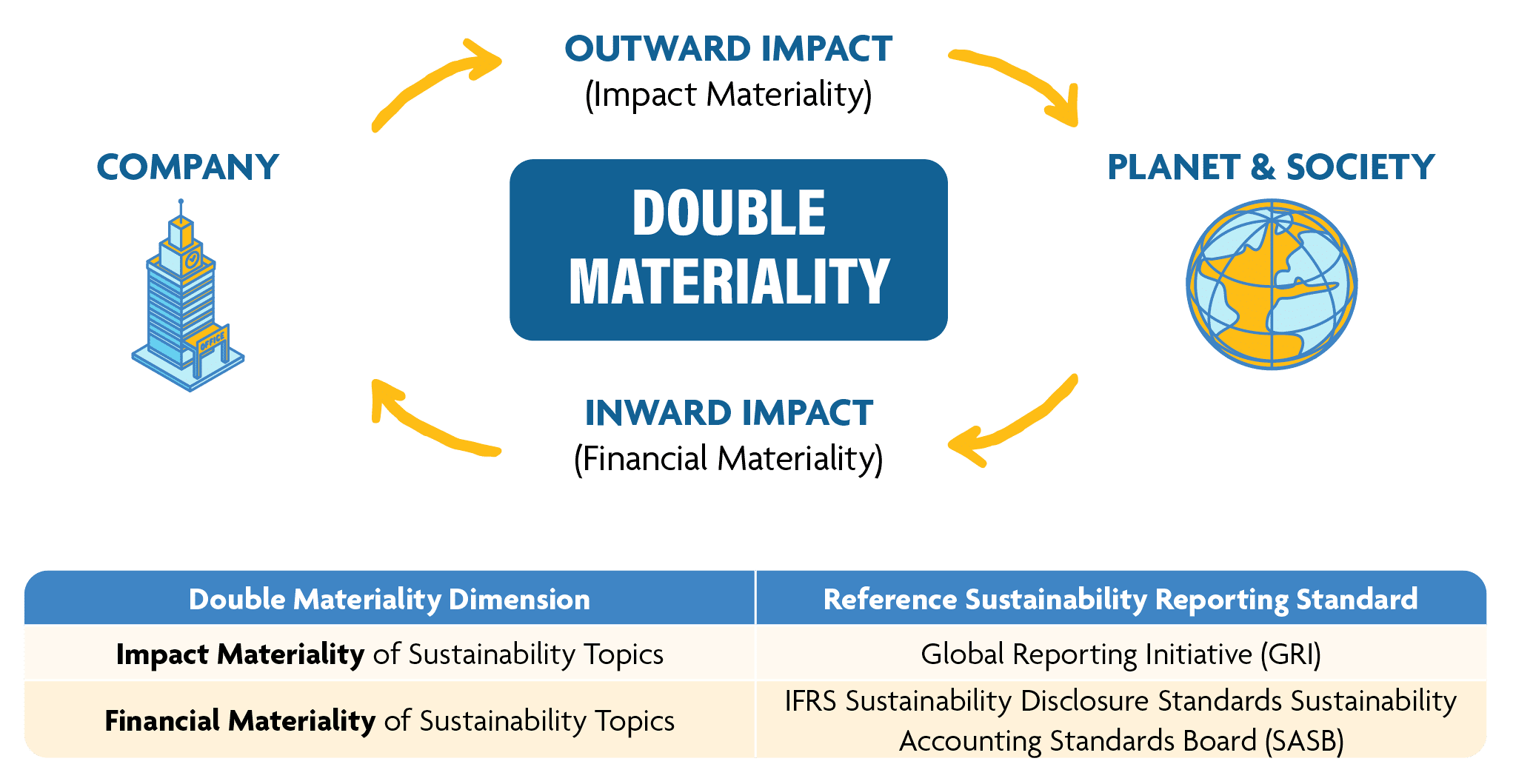
Recent international developments, together with continuous
engagement on ESG topics by the Company’s directors and senior
management as well as key stakeholders such as our suppliers,
allowed us to further improve and recalibrate our sustainability
framework.
We applied the principle of double materiality in this year’s
framework revamp, which acknowledges that companies are not only
impacted by external environmental and social factors (financial
materiality) but also influence these factors through their
operations and decisions (impact materiality). This principle
corroborates the recent introduction of the first two IFRS
Sustainability Disclosure Standards (IFRS S1 and S2), which were
developed in collaboration with multiple ESG standard-setting
bodies such as the Sustainability Accounting Standards Board
(SASB) and the Task Force on Climate-related Financial
Disclosures (TCFD), and the memorandum of understanding by GRI
and IFRS to coordinate their work programs and standard-setting
activities on sustainability reporting.
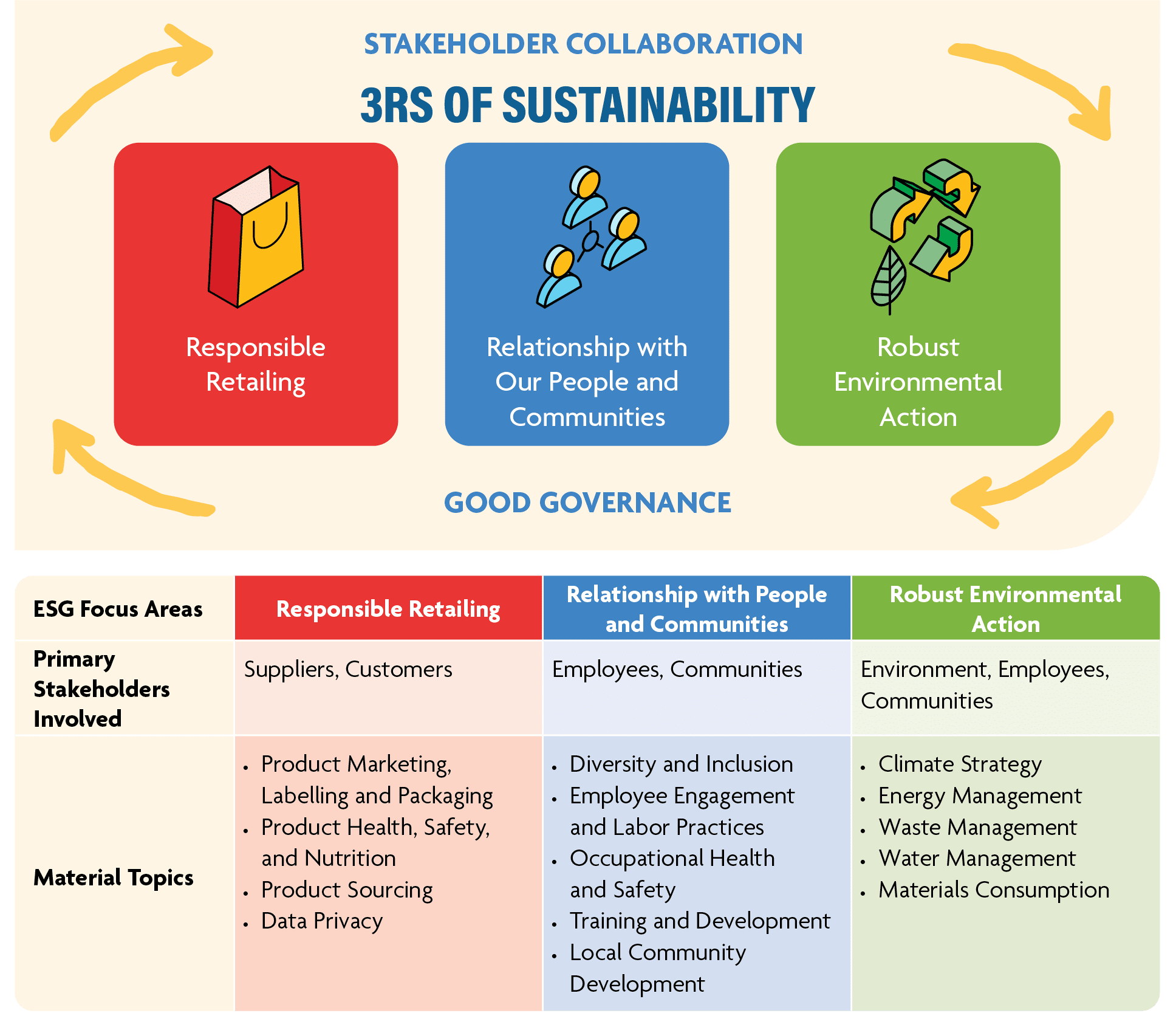
These reporting developments encouraged the Company to use
IFRS S1 and S2 and SASB, in addition to using GRI standards
in identifying our material topics. GRI standards have been
used by the Company since its first sustainability reporting
in 2018. We support the harmonization of sustainability
reporting standards towards more comprehensive reporting and
enhance comparability of ESG data across all
industries.
We have identified 14 material topics housed under our new
ESG focus areas named the 3Rs of Sustainability: Responsible
Retailing, Relationship with Our People and Communities, and
Robust Environmental Action. These new focus areas are
stakeholder-driven and align with our vision and mission to
bring trusted products and solutions that bring joy to our
stakeholders by promoting responsible retail practices,
fostering constant stakeholder collaborations, and managing
our overall environmental impacts.
The Company started to conduct a thorough data analysis and
benchmarking exercise in 2024 after we launched our revised
sustainability framework in 2023, as we aspire to release
our sustainability targets in 1-3 years.

Stakeholder Engagement
We recognize the importance of engaging with our stakeholders in developing a sustainable and growth-oriented strategy. By promoting dialogue with our key stakeholder groups, which we have identified as our customers, employees, suppliers and franchisees, and investors, we are able to gain valuable insights into their concerns and needs, which in turn help inform our decision-making to remain agile and responsive to changing needs and expectations.
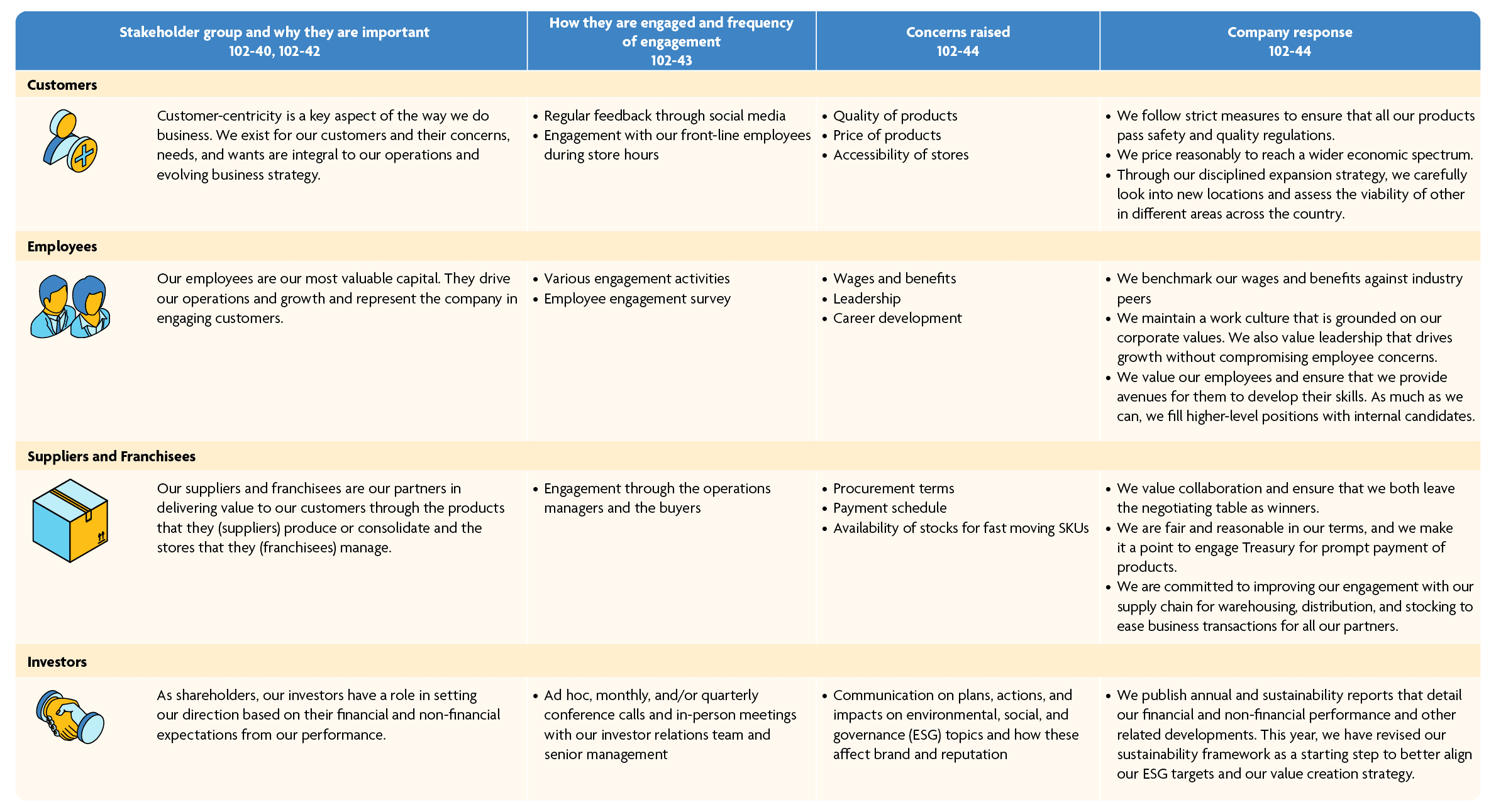
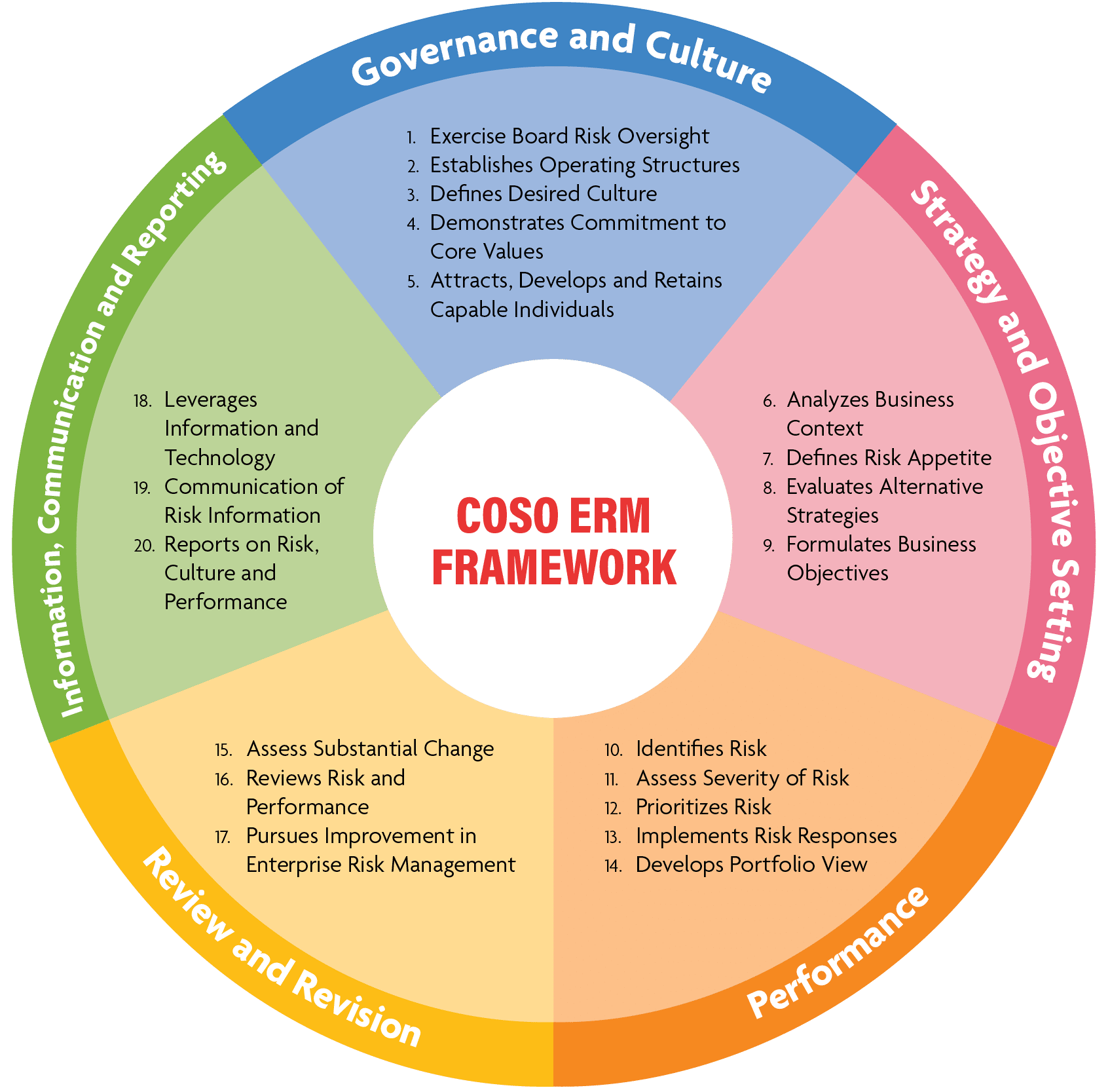
Enterprise Risk Management (ERM) Framework
At Robinsons Retail, we take a proactive and comprehensive approach to managing our risks. We have adopted the Committee of Sponsoring Organizations (COSO) 2017 ERM Framework to ensure consistent risk management across all facets of our operations.
Risk Classifications
Identifying and defining risks is a critical component for effective ERM. We have identified seven (7) primary risks that have the greatest potential to impact Robinsons Retail. By understanding these risks, we are able to inform decision-making and strategy on how to minimize potential impact.
1. Strategic risk
Risks that potentially impact our short, medium, and long- term goals; business models and adaptive pivots in response to emerging trends in the retail industry.
2. Financial risk
Risks that are associated with our performance across its key financial metrics, with emphasis on the net income.
3. Operational risk
Risks that are present in the daily conduct of business, such as physical risks to stores and distribution centers, as well as disruptions in the supply chain.
4. Reputational risk
Risks that affect stakeholder perspective on Robinsons Retail and its subsidiaries.
5. People risk
Risks associated with labor management and employee satisfaction.
6. Legal and Governance risk
Risks associated with compliance to pertinent laws and regulations, policy requirements, and relations with the government.
7. Digital risk
Risks within Robinsons Retail’s thrusts of incorporating relevant technologies in various aspects of business operations.
